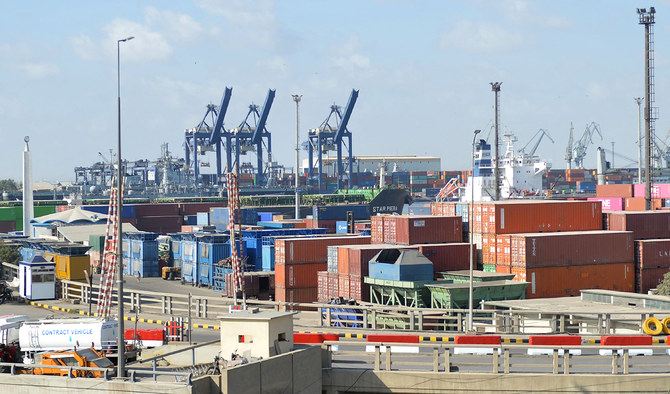ISLAMABAD: Pakistan has taken steps to “effectively” implement its international commitments regarding the European Union's Generalized Scheme of Preferences Plus (GSP+) but “deficiencies” remain, a senior EU official said on Monday.
GSP+ is a special trade arrangement offered to developing economies by European nations in return for their commitment to implement 27 international conventions on human rights, environmental protection and governance. The current GSP framework will come to an end in December 2023.
To maintain the benefits of GSP+, Pakistan and other beneficiary countries will need to re-apply and submit a work plan outlining their commitment to implementing the relevant international conventions.
“Over the last ten years, Pakistan has taken steps to effectively implement its international commitments on the 27 conventions and all of which we are scrupulously noting,” Dr. Ewa Synowiec, principal advisor at the Directorate General for Trade of the European Commission, said via video link from Brussels as she addressed a national dialogue called GSP+ Week organized by the Justice Project Pakistan (JPP) and the Parliamentarians Commission for Human Rights (PCHR) with participation from key Pakistani stakeholders in the government, judiciary, media and civil society.
“However, deficiencies remained in many areas, and for this reason, it is a good initiative taken by this forum to organize this week-long program,” Synowiec said, adding that the EU would also get a final report on Pakistan’s actions from its mission in Pakistan.
“The performance on international agreements and conventions are the basis of the GSP+ commitments and also the basis for the future of the program for all beneficiaries including Pakistan,” Synowiec added.
Her comments come as Pakistan has seen the mass arrests of leaders from former prime minister Imran Khan's party and the move to try them in military courts, following violent protests last month. Local and international human rights bodies have raised alarm about the crackdown against Khan and his party and said military courts infringe on due legal process.
Leading journalists have also been picked up, with rights groups pointing fingers at Pakistan's powerful intelligence services often suspected of intimidating critics in this way. Their involvement has rarely been proved.
















